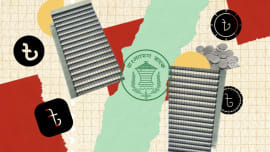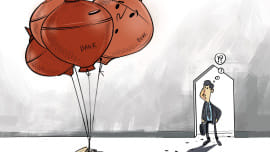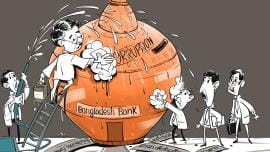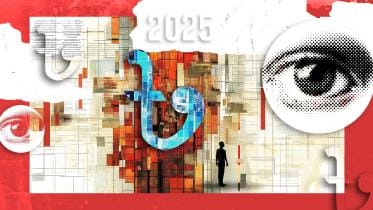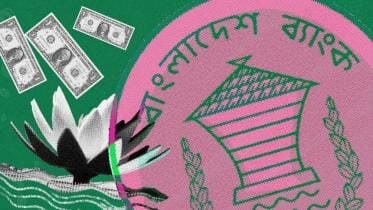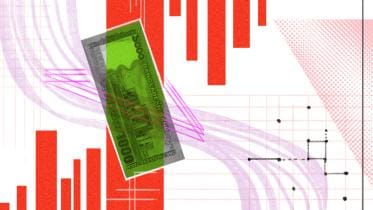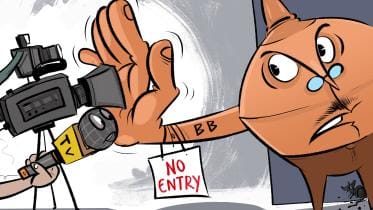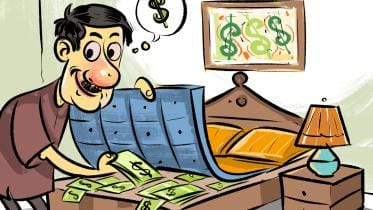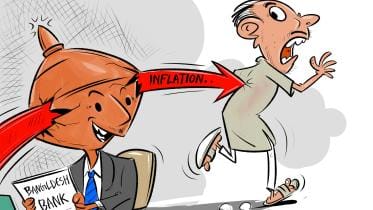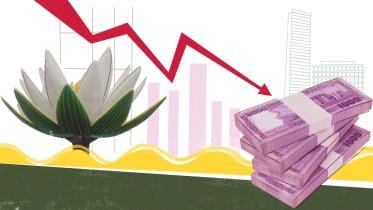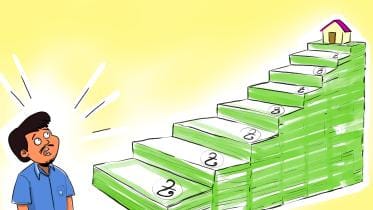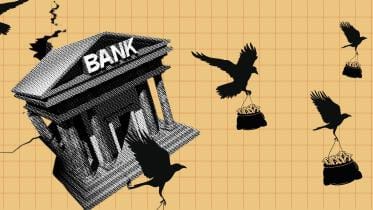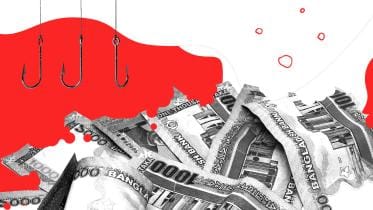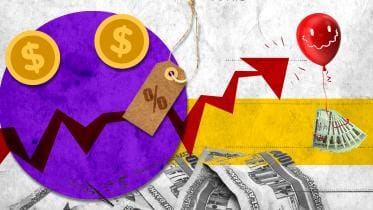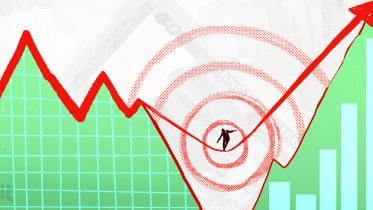Rebutting the rebuttal: On inflation, unemployment, and the Phillips curve
8 January 2026, 07:00 AM
Opinion
Opinion / The interim has failed to curb inflation and unemployment
29 December 2025, 02:00 AM
Opinion
How to make the Bangladesh Bank autonomy ordinance effective
21 August 2025, 02:00 AM
Opinion
Can monetary policy rescue the economy?
17 August 2025, 02:00 AM
Opinion
The economics behind Trump’s tariff war
14 July 2025, 02:00 AM
Opinion
Singapore in 10 years?: BIDA chairman’s optimism vs economic reality
21 April 2025, 02:00 AM
Opinion
What makes Bangladesh's economy more troubled to progress?
9 January 2025, 02:00 AM
Opinion
Opinion / Why is the banking sector crisis so deep-rooted?
25 November 2024, 02:00 AM
Opinion
The renaissance of Bangladesh Bank and some expectations
4 September 2024, 03:00 AM
Opinion
Can the new leadership save the economy?
18 August 2024, 02:00 AM
Opinion
Rebutting the rebuttal: On inflation, unemployment, and the Phillips curve
My article, "The interim has failed to curb inflation and unemployment," was published in The Daily Star on Dec 29, 2025. Dr Abdullah A Dewan has delivered a rebuttal to my writing, published on January 4, 2026.
8 January 2026, 07:00 AM
The interim has failed to curb inflation and unemployment
If the national election does take place in February, a new government will face dire quandaries for the economy.
29 December 2025, 02:00 AM
How to make the Bangladesh Bank autonomy ordinance effective
The success of the Bangladesh Bank’s policymaking hinges on several factors.
21 August 2025, 02:00 AM
Can monetary policy rescue the economy?
The question remains whether this policy can rescue the economy from the doldrums and place it firmly on the path of vibrancy.
17 August 2025, 02:00 AM
The economics behind Trump’s tariff war
Trump’s tariff war is a deliberate way to put a lid on China' export expansion.
14 July 2025, 02:00 AM
Singapore in 10 years?: BIDA chairman’s optimism vs economic reality
Bangladesh need not be like Singapore right now. Rather, it needs to understand how a country like Vietnam has been accelerating its pace of development.
21 April 2025, 02:00 AM
What makes Bangladesh's economy more troubled to progress?
There is no certainty that the economic aspects won’t deteriorate further.
9 January 2025, 02:00 AM
Why is the banking sector crisis so deep-rooted?
The regime-sponsored immorality to protect or pamper the financial gangsters not only eroded the future of the banking sector, but also made the wound too difficult to recover from.
25 November 2024, 02:00 AM
The renaissance of Bangladesh Bank and some expectations
We hope that the BB governor will continue the momentum and spirit to bring order and promote the economy.
4 September 2024, 03:00 AM
Can the new leadership save the economy?
Never has this country seen such a scholarly leadership team for economic policymaking in its history
18 August 2024, 02:00 AM
A philosophically incorrect, structurally frail budget
When commitments don’t match with actions, the budget becomes methodologically disturbing too.
11 June 2024, 08:00 AM
The concept of a public institution eludes our central bank
BB has recently restricted the journalists’ access for no reason in sight.
30 April 2024, 15:00 PM
Why do people stash dollars under pillows?
It's because of the inflation-led pressures on Bangladesh’s taka and the central bank's undervaluation of the US dollar.
11 March 2024, 02:00 AM
New monetary policy is appropriate in direction, but inadequate in dosage
Why this behind-the-curve approach to fighting inflation?
25 January 2024, 02:00 AM
Why our balance of payments won’t balance out post-election
With the facade of the elections at its height, prevailing financial issues seem to have faded into the background.
3 January 2024, 01:00 AM
A faulty tax policy equals a dehydrated housing sector
Under the Income Tax Act, 2023, the 'gain' tax on plots, flats and commercial establishments has doubled and redoubled.
4 September 2023, 03:00 AM
Rising risky loans and the talent of making excuses
The actual share of NPLs in total loans would have crossed 20 percent had BB not loosened the definition.
21 August 2023, 02:02 AM
Surging government borrowing portrays a grim future
Recent trends seem to care too little about the wise art of deficit financing.
6 August 2023, 03:00 AM
Monetary policy has been set free... but not really
While the government’s latest monetary policy for the first half of fiscal year 2023-24 shows an attempt to be rational for the market, it lacks vigour to solve inflation and the dollar crisis.
21 June 2023, 14:00 PM
National Budget 2023-24: Of sweet accounting and sour economics
If we choose only 10 commodities and measure inflation, the figure will land at no less than 20 percent.
10 June 2023, 13:00 PM


